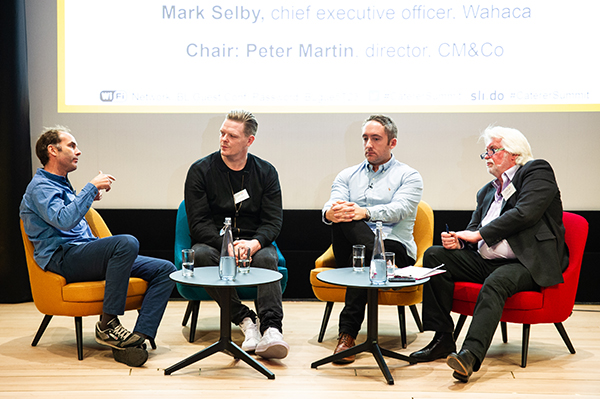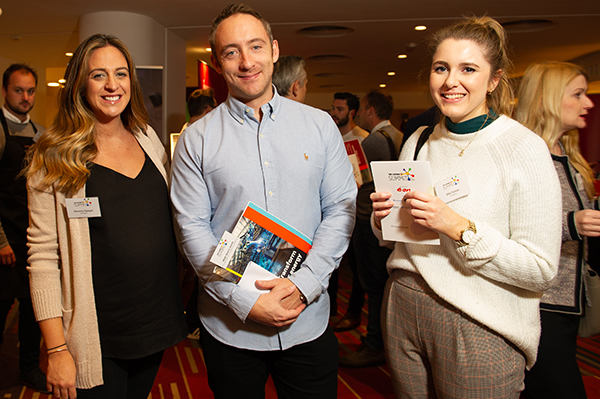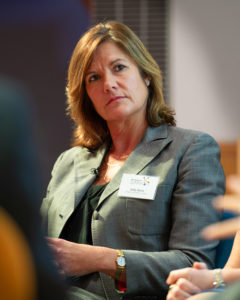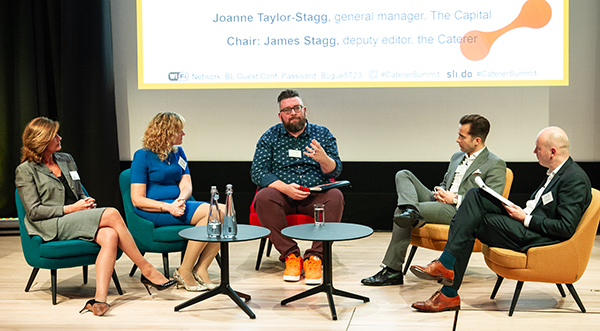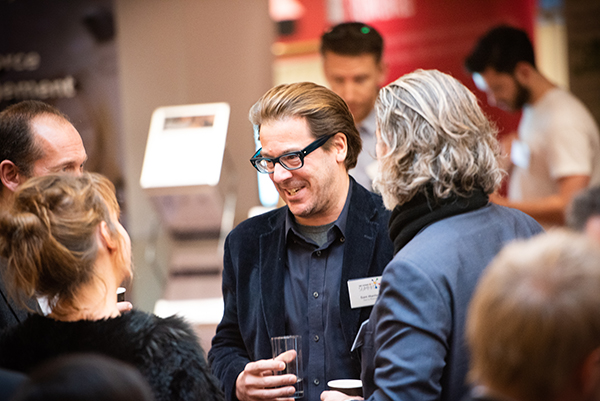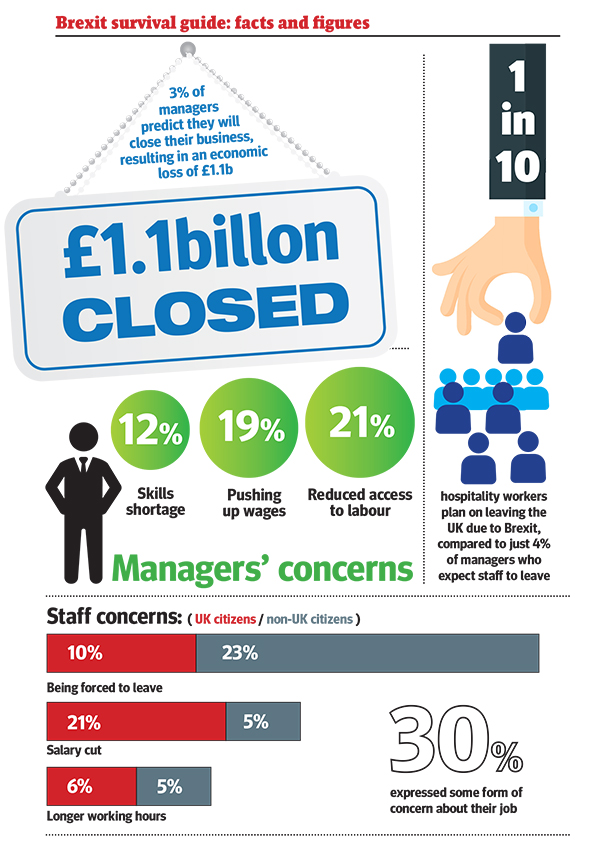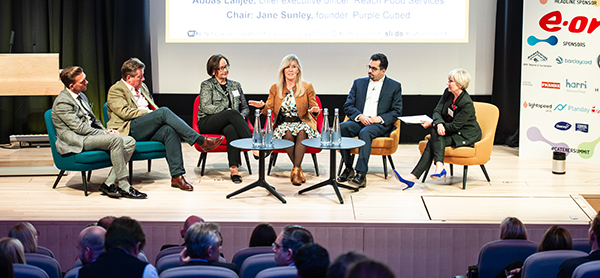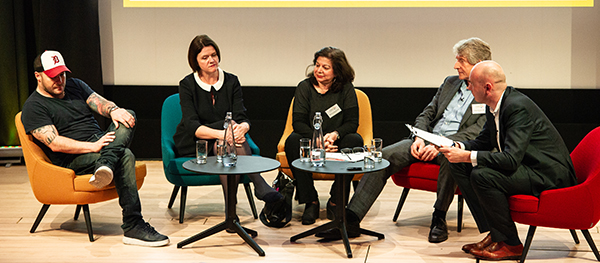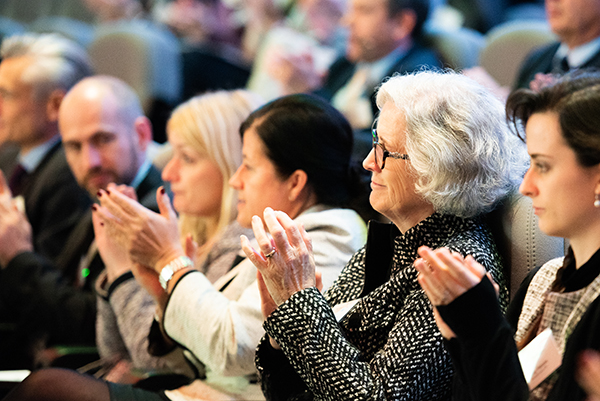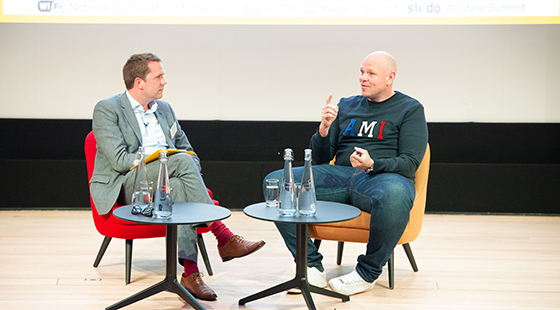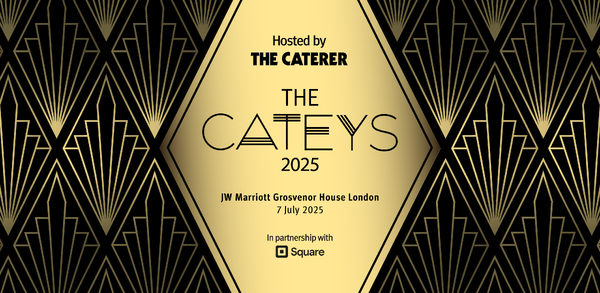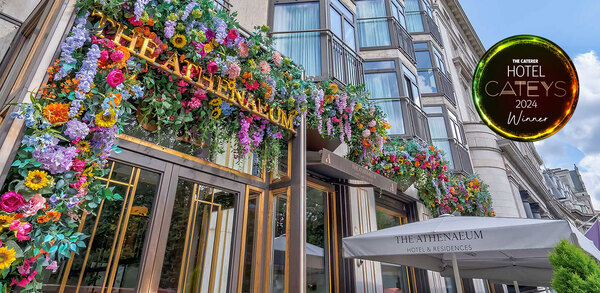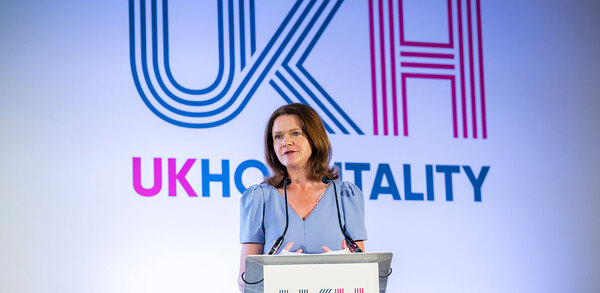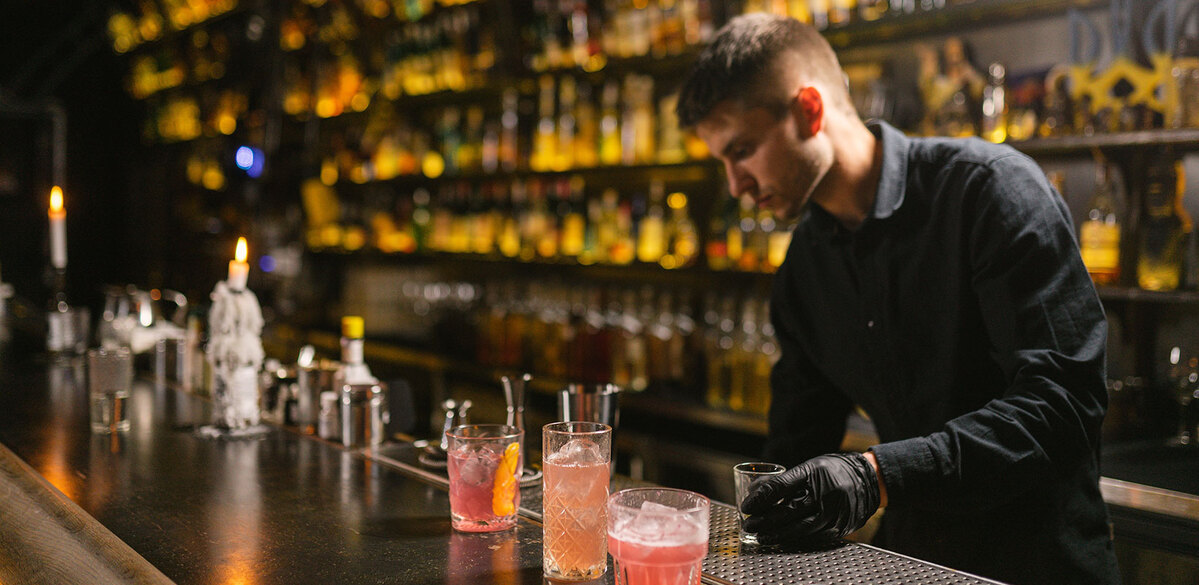Meet the experts: The Caterer Summit
Last week leaders from across the hospitality industry met at The Caterer Summit to discuss the problems affecting operators and the best strategies for moving forward. Janie Manzoori-Stamford reports
The Caterer Summit, held last week at the British Library in London, brought together leaders from across the hospitality spectrum to delve deep into the machinations of the five moving parts of every business in the sector: people, product, property, debt and marketing.
Street food entrepreneur Jonathan Downey, celebrated chef Tom Kerridge, and hotelier Gareth Banner were among the line-up to share business advice and inspiration based on their own success stories.
A new night out
"We are not a food hall." Jonathan Downey, the creative mind and energy behind the £13m Street Feast business, was very firm about that when he shared the secrets behind his mission to create a new night out.
The food hall business that is making waves in the US, with the likes of Reliance in Chicago and Urban Space in Manhattan, has yet to find its feet this side of the Atlantic, Downey explained. And US food halls tend to be daytime-only operations.
"My business takes care of the night time most. That's when most of the drinking is done and that's when most of our money is made: 80% of our revenue comes from bar sales," he said.
Downey founded Street Feast three years ago in partnership with Henry Dimbleby, and the concept's creation of a "new night out" was somewhat accidental, he said. It was launched on the principles of bars, street food, music and people.
âWhat we tried to do was offer a really wide variety of food and drink. Across our group of five sites we have 40 kitchens and 35 bars.â
Downey described the typical Street Feast audience, of which 70% is aged between 18 and 34, as food-forward, socially âuber-activeâ experience hunters who socialise en masse, but added that they are also not very loyal.
âEven though we create an incredible night out for them at Dinerama in Shoreditch, for example, they probably only comes to us four or five times a year. On some evenings, 80% of the thousands of people we get are new to the venue,â said Downey. âWe are always thinking about whatâs now, whatâs new and whatâs next, and that is what is being demanded of us by our audience.â
Nailing your offer
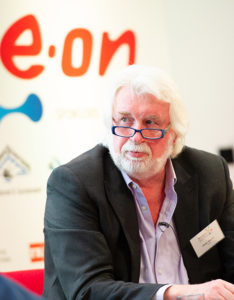
âIf you can build loyalty, itâs a good backbone. Build loyalty with value for money and give people a lot for what theyâre willing to pay. And then itâs about experience and creating that vibe,â said JJ Goodman, founder and owner of London Cocktail Club. âProduct doesnât define even half of the experience. Iâd argue itâs 25%. We push our staff to build great energy and have fun. Value for money creates repeat business, which is the only thing that operators should focus on to find success.â
The discussion then moved on to changing trends, and how much attention operators should pay them. Matt Grech-Smith, co-founder and managing director of the Institute of Competitive Socialising, doesnât think they should take precedence: âItâs about finding the right things that work within your experience. You donât necessarily want to change things intrinsically so the next time people come in they have a completely different experience.
âBut do keep one eye out for new things. We put a 3D photo podium in our West End Swingers venue. It gets used 15,000 times every three months and we collect all the email addresses from people sending the photos to themselves [they must opt-in]. It fits in with our operation, people actually want it and we get something out of it as well.â
Mark Selby, chief executive officer at Wahaca, explained his strategy: âOur big thing now is driving consistency. Weâve got 25 restaurants and a mission to get people loving tacos on a regular basis.
âWhen we first started, it was very much an experience. Weâre trying to encourage people to come in for their pork pibil or plantain tacos on a regular basis, while also throwing in lots of development work to create an element of the menu that continues to evolve and appeal to foodies.â
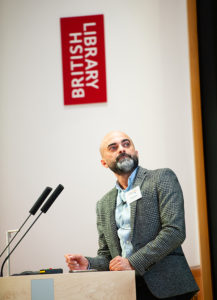
âWe are starting to get many enquiries from hospitality businesses because their own customers are asking about charging their cars,â he said. âItâs a mega-trend weâre not going to get away from.â
In 2013, analysts estimated that the number of electric vehicles on the road by 2030 would reach one million. But the latest forecast has put that figure closer to 11 million, Rana revealed. Yet despite the anticipated surge in demand, 48% of businesses have not yet considered installing charge points.
âOver next few years, demand for EV charging will increase substantially,â Rana said. âBut the challenge comes the later you leave it. In areas where people have already installed charge points and where grid capacity is constrained, your business will potentially be locked out from providing a service that your customers want.â
The Catererâs expert panel provided some innovative strategies for connecting with your customers and ideas to help you stand out from your competitors.
Mark McCulloch, founder and chief executive of We Are Spectacular, said: âLook at the more taboo industries like porn and gambling â" all as research â" these are the innovators. Look firmly outside the hospitality industry at the ones that have got it so right, digitally and messaging-wise. They can take your money within a second. Steal shamelessly from aggregator sites such as Netflix and Airbnb as your first step and then see if you can leapfrog them and improve on it.â
âThe way we consume social media has changed, particularly if youâre trying to attract people in,â Joanne Taylor-Stagg, general manager at the Capital suggested. âIf someone is looking to book our restaurant for a special occasion, they may be looking at Instagram several months before, but then theyâll look at TripAdvisor, Bookatable or maybe Facebook. Itâs not one channel anymore and you need to be on all of them, hitting them at just the right moment. If youâre just on one youâre missing opportunities.â
André Mannini, operations director at M Restaurants, continued: âThe key in terms of email marketing is you canât just send the same thing to everybody any more. It just doesnât work. You see it on the open rates. But if you have a good database that youâve segmented properly, then you can do targeted offers. Our strategy now is to still send a generic newsletter every few weeks and then smaller, targeted mails that immediately generate sales and trade.â
Steve Buckmaster, sales director at Brita, outlined the reasons hospitality businesses should aim to operate sustainably, pointing out that itâs what both customers and employees want.
Almost nine out of 10 millennials (88%) say their job is more fulfilling when they have the opportunity to make a positive impact on social and environmental issues, while 76% consider a companyâs commitments in these areas when deciding where to work. Meanwhile two-thirds (67%) of customers say they would boycott brands that lack an ethical conscience.
âThere is no one-size-fits-all solution. Think about what your company wants to achieve and cherry-pick whatâs good for you,â Buckmaster explained. To help hospitality businesses create a more sustainable and profitable future, Brita has created a toolkit that can be found at www.brita.co.uk/experience-brita/healthier-planet.
Brexit survival guide
As Britain barrels its way towards Brexit, uncertainty around what we can expect when it we get there is the one thing we can all agree on.
And this uncertainty has led to a growing list of concerns among hospitality employees and their managers about what Brexit means for the future of both their careers and their businesses (see Facts and Figures), making vital employee engagement a tough nut to crack.
âReassuring employees is the first step, which is hard when we donât know exactly how this will play out,â said Planday chief marketing officer John Coldicutt, who shared the results of a survey to quantify the likely impact of Brexit. âAs this talent pool continues to drain, becoming an employer of choice is going to be more and more important. Those that are the best at engaging, training and rewarding their employees are most likely to suffer less than those that see their employees as dispensable resources.â
Building a winning team
Jane Sunley, founder of employee engagement consultancy Purple Cubed, asked a panel for their top tips to attract, develop and retain talent:
⢠Donât just think about your guests as customers, think about your people in the same way.
â¢Â Get to know your team. If you value them with genuine passion and enthusiasm, they will do everything to prove to you that they want to be a part of your company.
â¢Â Find people who believe in your business and in what they can contribute to improve both themselves and the company.
â¢Â Offer career progression and training opportunities in order to build talent up from within rather than be constantly recruiting and driving wages up artificially.
â¢Â Make sure your existing employees are happy and positive ambassadors for the business; it helps you to grow because theyâll bring in people they know who will fit into that culture.
â¢Â Senior management have to be visible and get into the field. It generates employee engagement and managers will learn more from their teams than they will in the boardroom.Â
The panel consisted of Peter Avis, consultant; Robert Cook, managing director, Virgin Active; Kim Gieske, HR director, Planet Organic; Sophie Kilic, senior vice-president, talent and culture, AccorHotels; and Abbas Lalljee, chief executive, Reach Food Services.
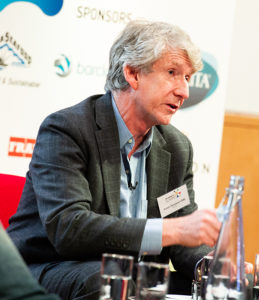
The former YO! Sushi boss made the comments during the business seminar the day after the chancellor, Philip Hammond, delivered his 2018 budget.
âThe biggest issues facing hospitality operators today are the National Living Wage, business rates and foreign exchange rates, which no one ever talks about, and frankly thatâs clobbered all of us,â he said. âBut you canât talk about it because itâs so global that itâs beyond our wit and imagination to understand why the dollar has moved from 1.50 to 1.30. That stuff is what causes business stress. The budget is nonsense.â
Rebecca Mascarenhas, owner of Sonnyâs Kitchen and Kitchen W8, agreed: âItâs so outside my control â" it is what it is.â
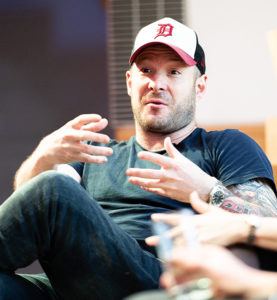
âThereâs a limit on what we can do timewise. Few people do well at lunch. Margins are tight at dinner,â said Rankin. âIf you canât sell booze to people earlier, if you canât open for breakfast, if you canât do takeaway because of licences â" itâs restricting our ability to trade and make money. Weâve got outside space but we canât use it. I donât care about £300,000 rent if I can trade properly.â
Rankinâs words prompted fellow panellist and UKHospitality chief executive Kate Nicholls to invite Rankin to join her at an upcoming meeting with Westminster head of licensing, Annette Acik.
âShe is sitting on the mayorâs nighttime commission. She says she wants to support businesses,â said Nicholls. âLetâs challenge her.â
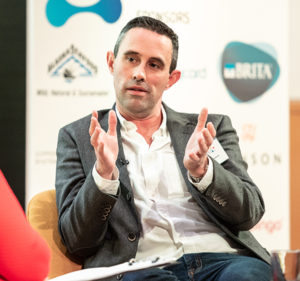
But perhaps whatâs most unique is the huge emphasis on entertainment, as managing director Gareth Banner explains: âWeâre not just in the hospitality business, weâre in the experience business today. People want so much more.â
Creative design from the in-house team at parent company Soho House & Co transformed the vast ground floor space of the former bank, with its Grade-II-listed counters and columns, into an array of bars and restaurants featuring a stage at its centre, showcasing a daily programme of music from 3pm until midnight.
âWhen we opened we were shutting it down at 10pm and reverting to piped music, but we saw a direct correlation between how long people stayed on the property for food and drink after the live music stopped,â said Banner. âIt became apparent it would be self-funding to extend the live music until midnight.â
Of course, it hasnât all been plain sailing. Banner said that while all the important elements were got right from the get-go, the best part of £6m has been spent on corrections, such as soundproofing a light well above the stage to ensure guests get a good nightâs sleep, and investing in a triple-stacked wall of ice-making machines to meet the unexpectedly high demand for cocktails. But again, thanks to the in-house design team, Banner was able to introduce most changes swiftly.
âI can call the team and theyâll be with us in 20 minutes,â Banner said. âPeople say service is most important, but design is at least equally important. You have to create a space in which people want to spend time and money.â
An audience with Tom Kerridge
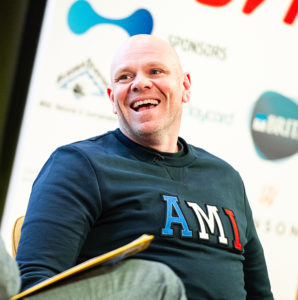
The Caterer editor Chris Gamm had enquired about the differences between operating at a five-star hotel in the capital and a Buckinghamshire pub. According to Kerridge, they both come down to the same basic ingredients.
âTry and find the best produce you can for your offer, make sure people know youâre there, and when they come through the door, you smile and say hello to make them feel welcome. You sit them down, you give them food and drink, then they leave and they give you money,â he explained, smiling.
âIt works. Itâs a very simple business and sometimes we hospitality operators over-complicate it for ourselves. We become too involved in a concept, a dream or an idea, but at the end of the day, a guest is coming to have a nice time.â
Running a London restaurant is very complicated, he added, and being in a five-star hotel comes with increased visibility and a broader remit, but the end result is very similar to what he and his team deliver at his two-Michelin-starred Marlow pub, the Hand & Flowers.
Kerridge admitted that running a business empire that today includes restaurants, television, books and music festivals, comes with a âmassive amountâ of pressure, but added that he tries not to overthink it.
âSometimes you have bad days,â he said. âOther days itâs really cool, like when youâre hanging with Nancy Cartwright. You run a restaurant and you meet Bart Simpson. Thatâs quite cool!â





